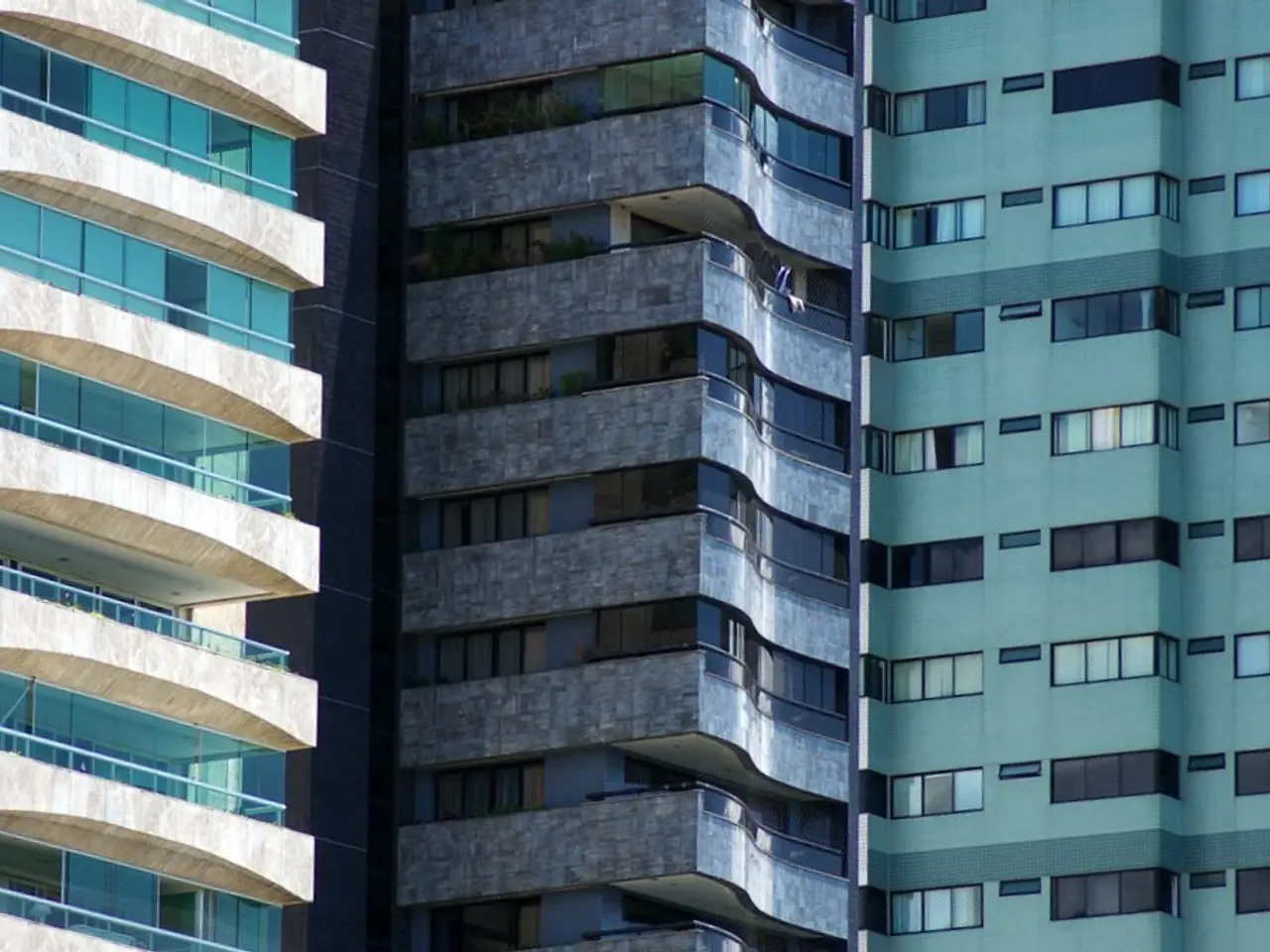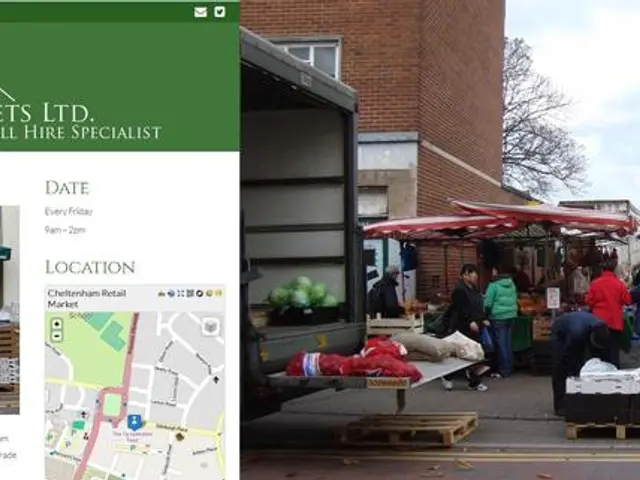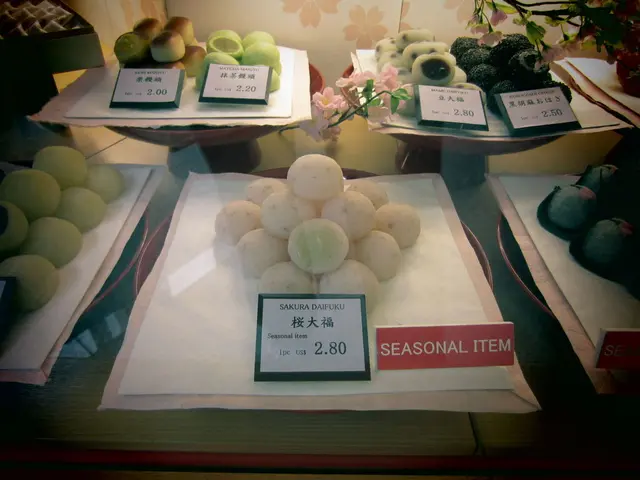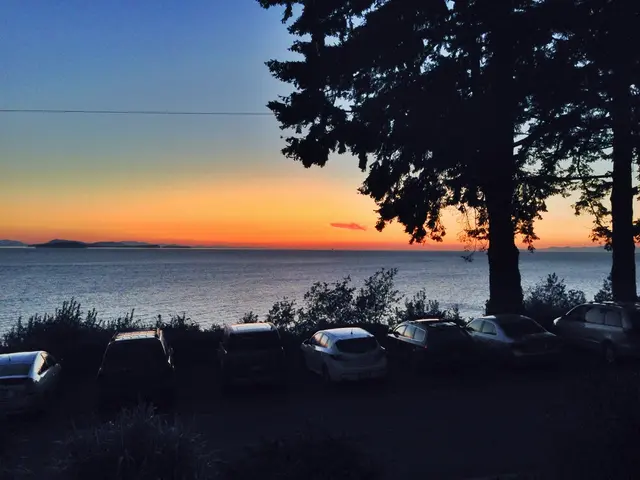Temporary Solutions in Place: Building Projects under Transition before Development Commences
In the heart of Cambridge, U+I is transforming a 47-hectare site, once a water treatment works, into a vibrant community hub. The development, slated to host over 5,000 homes, office/lab space, and a new district center, is set to redefine the city's skyline.
U+I's vision for this development is far-reaching, aiming to create a socially and economically inclusive, low-carbon area with a high quality of life. The company's commitment to the community is evident in their collaboration with It Takes a City, providing emergency accommodation during the pandemic.
Meanwhile uses, temporary uses of development sites during construction or vacancy, are a key component of U+I's strategy. These innovative practices offer a myriad of benefits for both the community and developers.
For the community, meanwhile uses activate underused or vacant sites, transforming them into vibrant places that foster social interaction, cultural events, and temporary services. This enhancement of neighborhood liveliness and safety is a significant advantage. Local businesses, artists, and community groups also benefit from affordable space for pop-ups, markets, exhibitions, or cultural activities.
Meanwhile uses contribute to local economies by attracting foot traffic and potential customers during otherwise dormant periods. They can serve eco-friendly or social purposes, such as urban gardens or solar installations that contribute to sustainability and community wellbeing.
Developers stand to gain from meanwhile uses as well. Sites remain occupied and maintained, preventing long-term vacancy that can lead to deterioration or vandalism, thus preserving site value. Meanwhile uses may also reduce property expenses, such as lowered business rates or insurance costs while the property is in use.
Short-term income or community goodwill is another benefit for developers. Improved relationships with neighbors and stakeholders can smooth future approvals and development. Meanwhile uses offer opportunities for designers and architects to innovate and gain commissions, adding creative value to the project.
Meanwhile uses help developers manage construction timelines and cash flow more effectively by having an interim use that brings return before full development. They also improve the public perception and anticipation of the future project by activating the site in ways that demonstrate ongoing commitment to the area.
The concept of meanwhile uses has been successfully implemented in London for over a decade, with examples including Flat Iron Square and King's Cross' Of Soil and Water. The social value of such spaces is now being recognized, as they provide opportunities for people to start a business who may not have done so otherwise. Foodbanks, charity shops, and workspaces for arts groups have benefited from meanwhile uses in this way.
Experts like Charlotte Hutchinson from Carter Jonas suggest that short-term uses (meanwhile uses) on development sites could be implemented when delays occur. Maintaining a presence locally and engaging with the community can help foster a good relationship with the local community, providing a positive start to a public consultation exercise.
By providing community facilities, developers can effectively 'test the water' for a permanent use of this type, serving as an effective form of market research. For instance, Elephant and Castle in London has seen the successful implementation of Mercato Metropolitano, a meanwhile use that provided new food and beverage businesses the opportunity to 'incubate' in a new business hub.
In Cambridge, U+I plans to fully embrace the concept of meanwhile uses in the development, ensuring a win-win scenario: meanwhile uses maximize site utility, reduce negative impacts during redevelopment, and build community support while enhancing economic feasibility for developers.
- U+I's plan for the Cambridge development includes activating underused or vacant sites during construction or vacancy with meanwhile uses, transforming them into vibrant public spaces that foster social interaction, cultural events, and temporary services.
- The use of meanwhile uses in the Cambridge development will provide opportunities for local businesses, artists, and community groups to have affordable space for pop-ups, markets, exhibitions, or cultural activities.
- Developers, such as U+I, can benefit from meanwhile uses as sites remain occupied and maintained, preventing long-term vacancy that could lead to deterioration or vandalism, thus preserving site value and reducing property expenses.
- By implementing meanwhile uses in the Cambridge development, U+I aims to maximize site utility, reduce negative impacts during redevelopment, and build community support while enhancing economic feasibility for developers, ultimately contributing to the creation of a socially and economically inclusive community hub.




